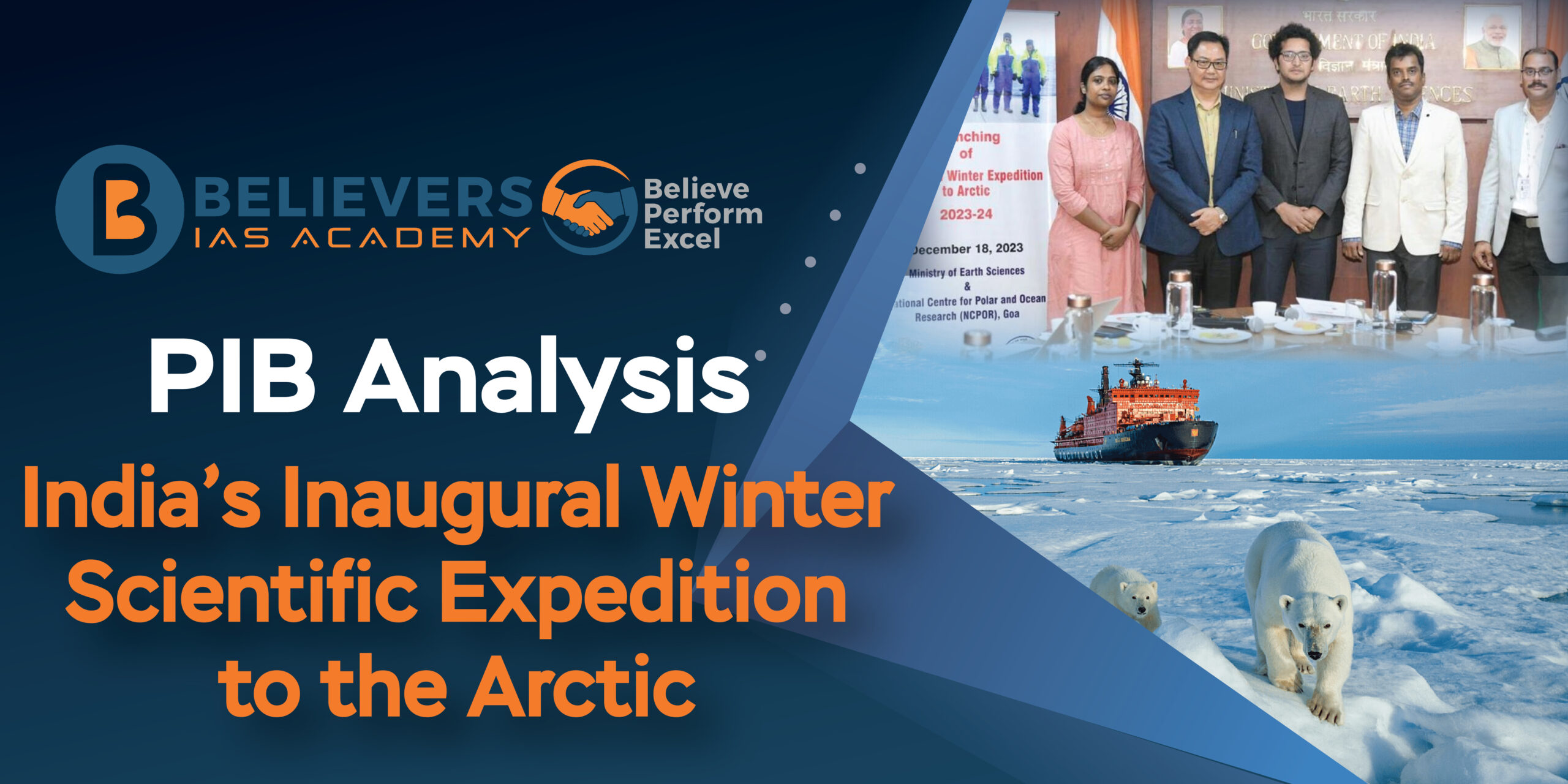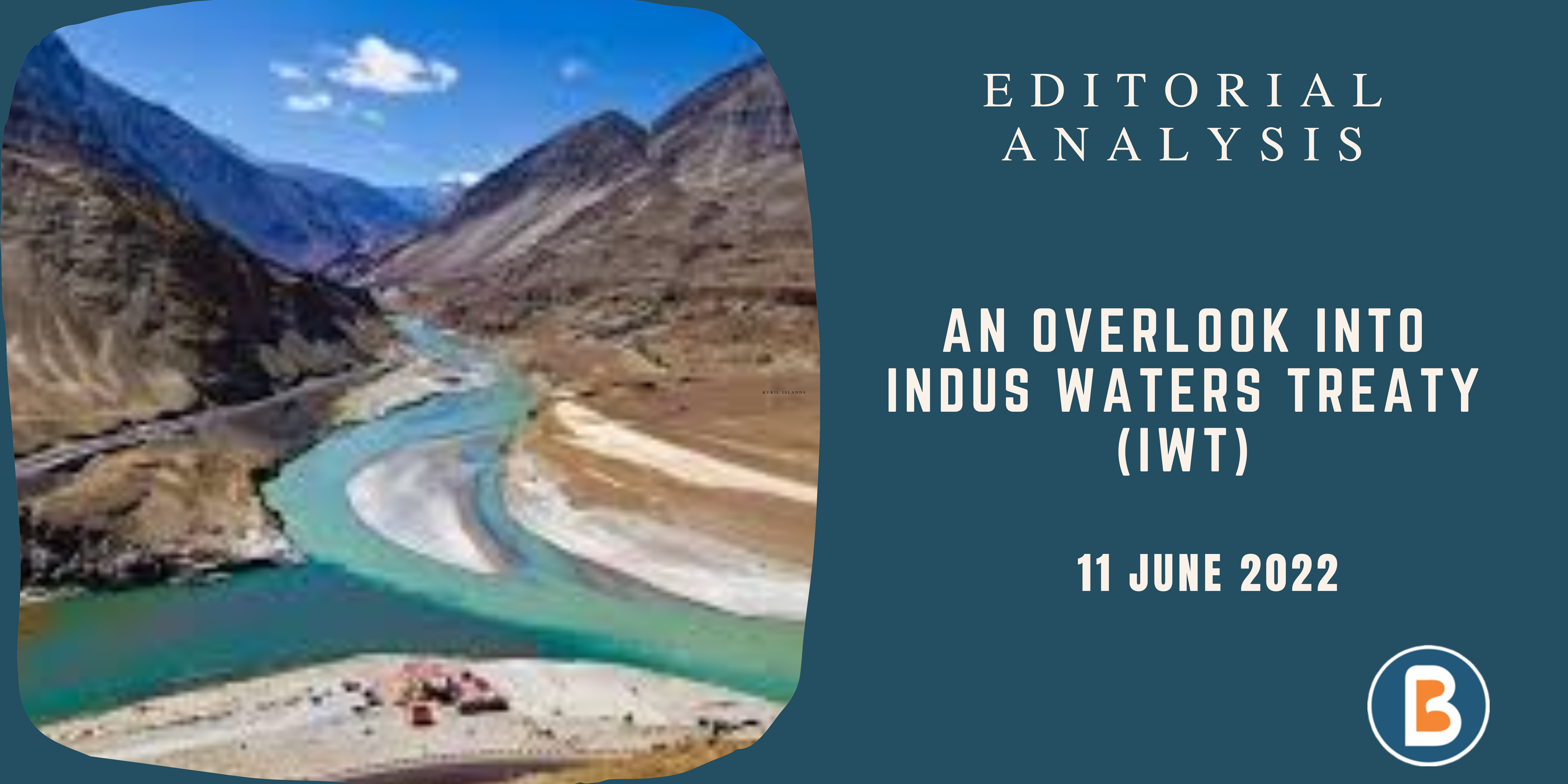India’s Inaugural Winter Scientific Expedition to the Arctic
Context:
The Union Minister has initiated India’s first-ever Winter Scientific Arctic expedition.
Relevance:
GS-03 (Science and technology)
Main Highlights:
- The winter scientific expeditions by India to the Arctic, spanning from November to March, provide a unique opportunity for researchers to conduct distinctive scientific observations during polar nights.
- These periods experience nearly 24 hours of darkness and sub-zero temperatures, reaching as low as -15 degrees Celsius.
- This endeavor aims to enhance our comprehension of the Arctic, particularly in the realms of climate change, space weather, dynamics of sea-ice and ocean circulation, as well as ecosystem adaptations.
- These factors significantly influence weather and climate patterns in the tropics, including the monsoons.
- The scientific explorations to Earth’s polar regions, both the Arctic and the Antarctic, are made possible through the Polar and Cryosphere (PACER) scheme under the Ministry of Earth Sciences (MoES).
- The National Centre for Polar and Ocean Research (NCPOR) in Goa, an autonomous institution of MoES, oversees these crucial scientific initiatives.
The PACER Scheme:
- It is implemented by the National Centre for Polar and Ocean Research (NCPOR).
- The scheme comprises six components, including the construction of a polar research vessel and the establishment of a third research base in Antarctica.
- Major works under the scheme include field-based studies on biogeochemical processes in East Antarctica’s Larsemann Hills, deployment of the IndARC mooring system in Svalbard, glaciological research in the Himalayas, installation of Automatic Weather Station systems in the Spiti region, and the successful execution of the 11th Indian Southern Ocean Expedition.
National Centre for Polar and Ocean Research (NCPOR):
- It is an autonomous institute under the Ministry of Earth Sciences.
- Responsibilities include managing Indian Antarctic and Arctic research bases, overseeing the research vessel ORV Sagar Kanya, and facilitating scientific research in polar regions and the Indian Ocean sector.
- Leads geoscientific surveys in the Exclusive Economic Zone (EEZ), deep-sea drilling in the Arabian Sea basin through IODP, and exploration for ocean resources like gas hydrates and multi-metal sulphides.




